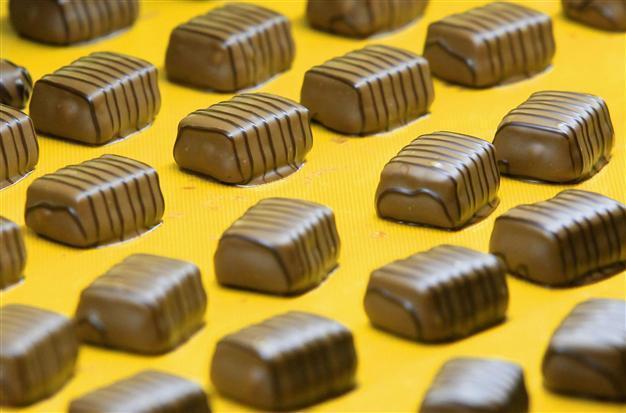Chocolate makers of Belgium deplore copycats
BRUSSELS / JAKARTA - Reuters

Overall exports of Belgian pralines rose just 1 percent between 2007 and 2011, but shot up 60 percent in Asia and 82 percent in Africa. REUTERS photo
Belgian chocolate makers believe their renowned pralines should have similar protection to that enjoyed by French champagne or Italy’s Parma ham.They want the term “Belgian chocolate” to be their exclusive preserve and also want to crack down on foreign rivals dressing up their products as “Belgian style” or of a “Belgian recipe.”
Copycats, they say, eat into sales and undermine a stamp of quality built up over the century since Jean Neuhaus invented the hard-shelled, cream-filled chocolate, the praline, in 1912.
The industry federation will meet regional governments from next month to decide how Belgium might apply to the European Union to protect Belgian chocolates or perhaps seek a trademark to safeguard their treats.
“What makes us sad is that very often the copies are not up to the standard of the originals,” Jos Linkens, chief executive of Neuhaus, told Reuters in an interview.
“If top chocolatiers around the world copied us, perhaps we would be happy. We don’t want the image of quality to suffer,” said Linkens.
Overall exports of Belgian pralines rose just 1 percent between 2007 and 2011, but shot up 60 percent in Asia and 82 percent in Africa.
Federation spends $85,000 for lawyers
The CHOCOSUISSE federation of chocolate makers, has trademarked the terms “Swiss” and “Switzerland” in the European Union, the United States and Canada.
 The federation has a staff member dedicated to the problem and can spend up to 80,000 Swiss francs ($85,100) a year on lawyers’ fees.
The federation has a staff member dedicated to the problem and can spend up to 80,000 Swiss francs ($85,100) a year on lawyers’ fees.“We check trademark applications all over the world and we regularly see cases in which Swiss, Switzerland or references to the country such as the flag are misused,” said federation head Franz Schmid.
“The problem is more prevalent in Asia, South America and eastern European countries, including Turkey.”
Meanwhile, global cocoa prices could more than double by 2020, rallying to a level last seen 36 years ago, if production fails to catch up with demand, a director at Singapore-based Petra Foods has said.
Cocoa demand is forecast to exceed production by 45,000 tons in the season to September 2013, according to the International Cocoa Organization, with grindings expected to rise 1.5 percent to 4.01 million tons.
Multinational firms such as Cargill and Barry Callebaut, the world’s top chocolate maker, have already built grinding projects in Indonesia. Turkey’s Yıldız Holding, which also owns the global Godiva brand, is among the top 10 buyers.
















